-
NXT.NOW™
Tech Mahindra has built pioneering systems, processes, and solutions, for enterprise clients across the globe. Sitting at the intersection of change, it’s time to deliver the future of industries. Introducing NXT.NOW™ .
Know more -
Industries
Industries
As industries converge and new industries emerge, we are re-imagining our strategy, solutions and platforms too. Our innovators and thought leaders are in continuing conversations with those who influence and shape the future of industries.
- Communications
- Media & Entertainment
- Manufacturing
- Banking, Financial Services and Insurance
- Healthcare Life Sciences
- Retail and Consumer Goods
- Energy and Utilities
- Hi-Tech
- Travel, Transportation, Hospitality and Logistics
- Public Sector and Government
- Professional Services
- Oil and Gas
- Private Equity
-
Services
Services
Our service offerings are aligned to the changing world of our customers, Our portfolio of services range from designing strategy to delivering impact.
- Infrastructure and Cloud Services
- Experience Design Services
- Business Process Services
- Network Services
- Testing Services
- Business Excellence Services
- Integrated Engineering Solutions
- Performance Engineering
- Telecom Product Engineering
- SAP
- Oracle
- Enterprise of Future
- Data Analytics
- Artificial Intelligence
- Generative AI
- Cyber Security
- Customer Experience
- Digital Supply Chain
- Intelligent Automation
-
Innovation
Innovation
At Tech Mahindra, our curiosity has led us to break new grounds and nurture a brave new world of innovation.
-
DigitAll
DigitAll
Our DigitALL philosophy focuses on transforming clients' businesses across Products, Services, Business Models and Reimagined Business Processes; leading to new Revenue Opportunities, Enhanced Customer Experience, Operational Efficiency, Reduced Risk, and a better Society.
Know more -
People
People
We are a company with a purpose, a purpose of creating meaningful human experiences for our 148K+ associates.
-
Who We Are
- Mahindra Group
- Tech Mahindra
- Leadership
- News & Media
- Corporate Citizenship
- Alliances
- Insights
Mahindra Group
A federation of companies, bound by one purpose - to Rise. Inspired by this spirit, our legacy and values, our goal to always positively impact our partners, stakeholders, communities and the world at large, remains unshakeable.
Know moreTech Mahindra
We are the digital Changemakers and we are here to disrupt old ideas, blaze new trails, and create connected experiences; for a connected world.
Leadership
Our executive leadership is at the heart of our award-winning technology. These are some of the brightest and most accomplished minds in the industry. They drive their excellence forward by delivering state-of-the-art technological solutions and managing all the key financial, strategic, and operational decisions of the company.
Know moreNews & Media
Take a tour of our media section to see our latest press releases, news coverage, updates and upcoming events.
Corporate Citizenship
#RiseForGood is a way of life that we believe in here at Tech Mahindra. We understand that technology can have a transformative impact on communities. Here are our efforts to make the world a better place through our corporate and individual initiatives.
Alliances
We partner with some of the most powerful enterprises to deliver connected experiences to our customers and help them Run Better, Change Faster, and Grow Greater.
Know moreInsights
We truly believe disruptive insights are delivered when one collaborates. Here is a sneak peek to the curated perspectives, insights, and POVs created in partnership with analysts, futurists, advisors, and storytellers.
Know more -
Our Brand
Our Brand
At Tech Mahindra, our brand playbook is built around being purpose-driven, people-first, and performance-led. Through our refreshed brand pillars and NXT.NOW™ framework, we have been pushing the sustainable transformation agenda powered by emerging technologies encouraging C-Suite leaders to Rise for a more equal world, to be future ready, and to create value. We are proud to be recognized consistently as the fastest growing IT services brand globally by Brand Finance.
- Portfolio Companies
- Investors
- Partner Ecosystem
- Sustainability
- Contact Us

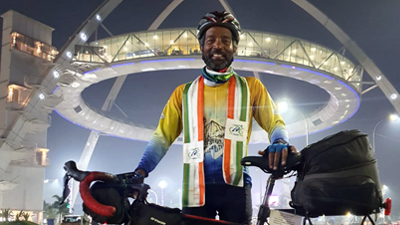
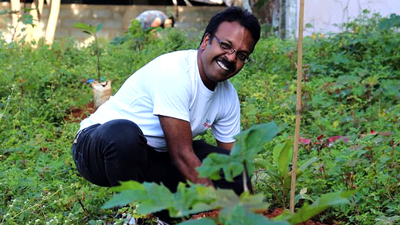

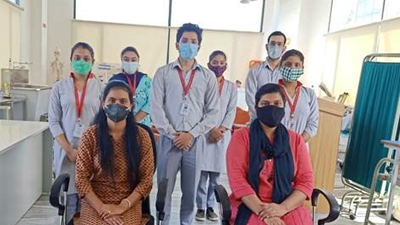
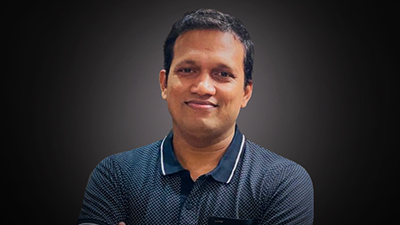
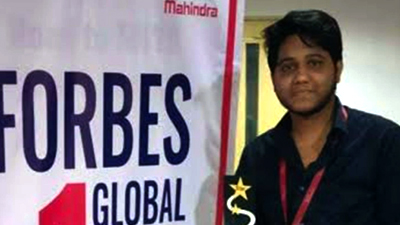
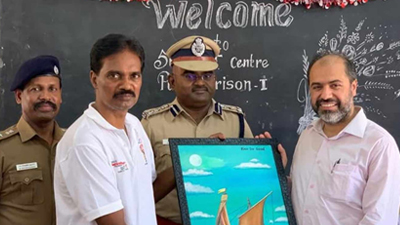

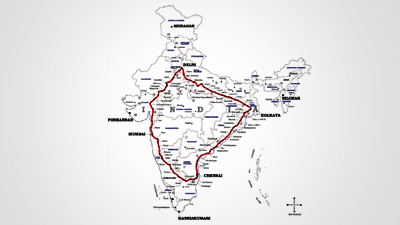
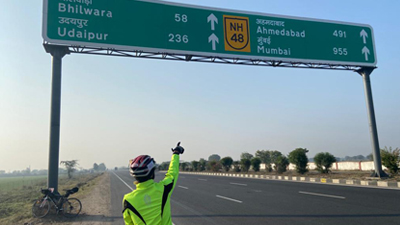 As he crossed Bihar to reach Varanasi, and then Allahabad, he met a fellow cyclist who had begun his own trip across the Golden Quadrilateral – what a small world! They decided to join forces and traversed through the beautiful landscape of Agra, Mathura, Vrindavan, and then, New Delhi. There, he met the wonderful TechM Noida Corporate Services team who felicitated him and bode him well as he took to Rajasthan. With a temperature of 6 degrees, he would bathe in freezing water every day, but his love for cycling kept him going. He even met a kind hotel owner who, upon hearing his story, packed him free food for the long journey ahead.
As he crossed Bihar to reach Varanasi, and then Allahabad, he met a fellow cyclist who had begun his own trip across the Golden Quadrilateral – what a small world! They decided to join forces and traversed through the beautiful landscape of Agra, Mathura, Vrindavan, and then, New Delhi. There, he met the wonderful TechM Noida Corporate Services team who felicitated him and bode him well as he took to Rajasthan. With a temperature of 6 degrees, he would bathe in freezing water every day, but his love for cycling kept him going. He even met a kind hotel owner who, upon hearing his story, packed him free food for the long journey ahead.
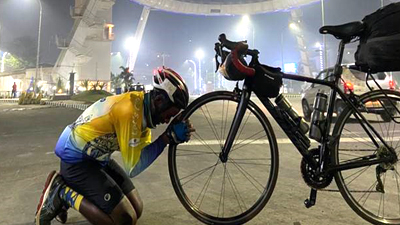 When he entered the West Bengal border and realized there was “only 250 km left” (his words, not ours :)) to reach Kolkata, he was ecstatic.
When he entered the West Bengal border and realized there was “only 250 km left” (his words, not ours :)) to reach Kolkata, he was ecstatic.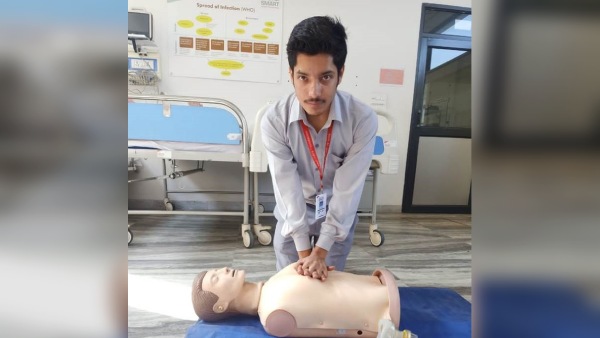
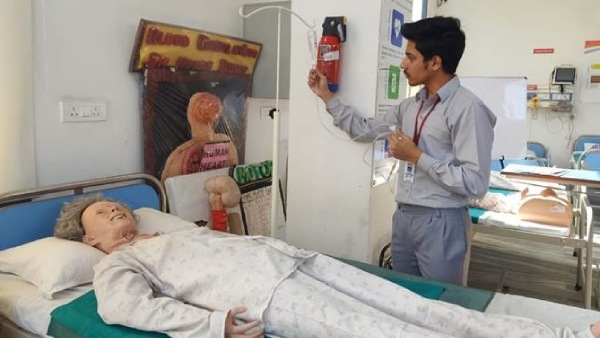
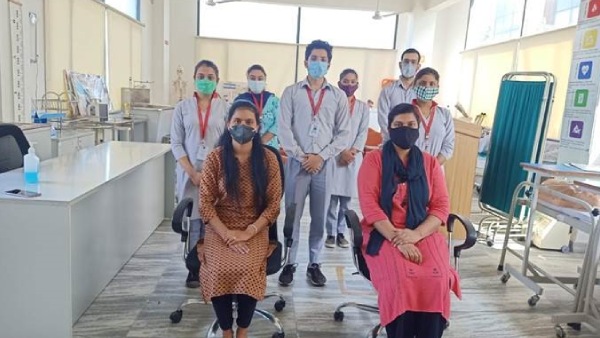



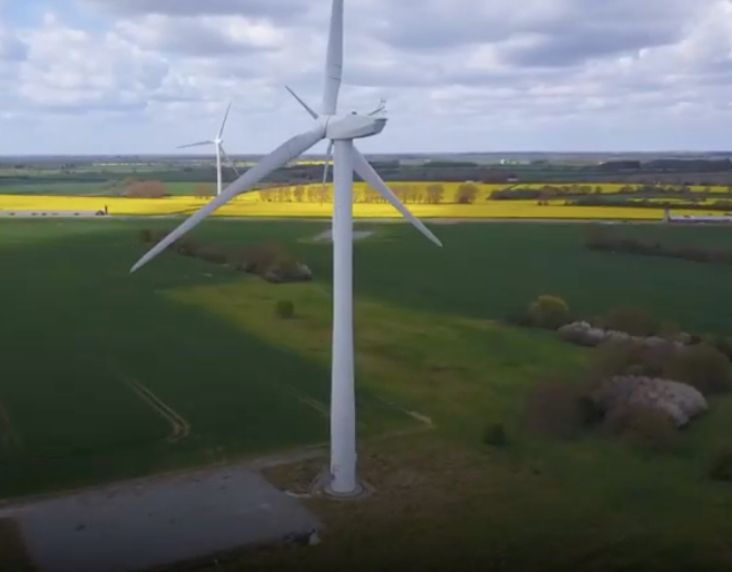
#RiseFromWithin: Making Social Responsibility Personal – Ashok Garla and the story of Amachavadi
"Sustainability has to be a way of life to be a way of business.” – Anand Mahindra
In 2017, TechMighty Ashok Garla and his family were on a road trip to Mysore. The journey was long, but the tranquil scenery as they traversed through scenic villages and towns, more than made up for the time spent in the car. While the visuals of the countryside were breathtaking, the driver remarked that the reality of communities living there was stark in contrast. They lacked resources and support, and the already dire situation was only getting worse.
Ashok wanted to help but didn’t know how to. Much like many others who could sympathize with the problems of farmers in India, he was struggling to find solutions.
This incident stuck with him for a long time. Growing up, his father had imbibed in him the importance of helping the needy and leading with kindness and compassion. In 2009, When his daughter turned 4 and they decided to celebrate it at a shelter for the differently abled, Ashok came face-to-face with his life’s purpose: individual social responsibility. He recalls that seeing the children’s faces light up in joy was something he would never forget and that there was simply no other life experience or job that would provide the same satisfaction.
It was these two life experiences that set the stage for the impeccable work that has transformed the lives of an entire village. A few months after their trip to Mysore, Ashok’s wife and daughter returned from a training session – by an NGO, the IDPMS (Initiative for Development through Participation of Marginalised Sections) Society – in Amachavadi, a village in Karnataka, India. Home to 1300 farmers, Amachavadi was suffering the dire consequences of a massive water crisis. There hadn’t been any rain since 2011; the cultivated land had reduced by more than half and some crops like banana and vegetables simply could not be grown anymore.
But now, there was a sliver of hope. The solution to their problems lay in the science of water conservation. The trainer of the NGO session was a farmer who had managed to restore groundwater levels for over 2000 acres of land by constructing borewell recharges – water conservation structures that replenish existing borewells.
However, with a single borewell recharge costing half a lakh to construct, how were they going to fund this project?
“How wonderful it is that nobody need wait a single moment before starting to improve the world,” goes the famous quote by Anne Frank. Upon hearing the woes of these farmers, Ashok and his wife got to work right away. By reaching out to their small network of family and friends, they managed to raise around 1.2 lakhs. But their resolve to help Amachavadi did not waver; they knew they could create a larger impact with more help.
Farmer Veeraraja Nayak standing next to elakki banana trees that finally thrived after the second check dam was constructed, ensuring his borewell was recharged with water
That’s when Ashok reached out to Employee Social Responsibility Options (ESRO) at TechM for support in terms of funding and volunteers. As the name suggests, ESRO helps TechMighties fulfill their individual social responsibilities. Ashok took it upon himself to convince ESRO that this was a cause worth investing in. He assured them complete transparency and ownership, and at the end of the day, his passion for helping the villagers won them over.
In just the first year, IDPMS and TechM, in a collaborative effort, constructed 13 borewell recharges for the village. To ensure that these borewells don’t run dry, four check dams were constructed that helped water percolate to these recharge systems. Recently, a 700-metre-long canal that runs through the farmland was de-weeded, deepened and widened, benefitting over 14 farmers and 54 acres of land. Ashok recalls fondly that the moment they finished constructing the canal, there was huge downpour of rain— almost like a symbol of their lives, finally, changing for the better.
The past five years, however, haven’t been easy. In the beginning, Ashok’s lack of expertise was a huge hurdle, and he didn’t feel confident owning the project. But with his heart set in the right place and the mentorship of the NGO members, he was able to learn quickly. With the NGO needing funds, and Ashok needing “domain knowledge” as he calls it, this collaborative effort helped bridge the divide and create real, positive impact.
The team is set to construct two more check dams this year, and Ashok is hopeful of finally fulfilling his life’s purpose.
With one village transformed and thousands of destinies rewritten, he’s just getting started.
Here are a few TechMighties that Ashok would like to thank. We salute your efforts! :